It Takes a Global Village to Tackle Child Labor on Farms
We can all play a crucial role to ensure that all children grow up in dignity. So, who’s with us?
Home » Issues » Human rights » Child labor
Some of world’s most traded goods—coffee, chocolate, tea, bananas, palm oil, and timber products—have human rights abuses, like child labor, embedded in their supply chains. In fact, the majority of children engaged in child labor worldwide—71 percent—are found in the agricultural sector.
There is no place in responsible business practices for child labor and other human rights violations. That’s why our 2020 Certification Program is shifting to an “Assess-and-address” approach, which goes much further than a simple prohibition approach in its ability to drive change on human rights. This risk-based approach focuses on prevention, collaboration, and improvement. It incentivizes farmers to tackle the root causes of child labor in collaboration with their supply chain, local government, and civil society, rather than hide it.
To further support farmers in their due diligence journey to prevent, monitor, and remediate the issue, we have developed a child labor toolkit. This step-by-step guide helps farms, businesses, and others to implement child labor due diligence, including risk assessments, mitigation actions, remediation, monitoring, engaging with children safely, and context behind legislation.
We call on you to take action to tackle child labor in your supply chain. Please contact us with additional questions.
Our comprehensive child labor toolkit offers step-by-step modules to assess, mitigate, monitor and remediate child labor in agricultural settings.
Read our position paper to learn how we tackle child labor in agricultural supply chains and rural communities.
Download this one-sheet on integrating our assess-and-address approach with CLMRS and Child-Labor Free Zones.
Learn more about our community approach to addressing child labor in Turkey.
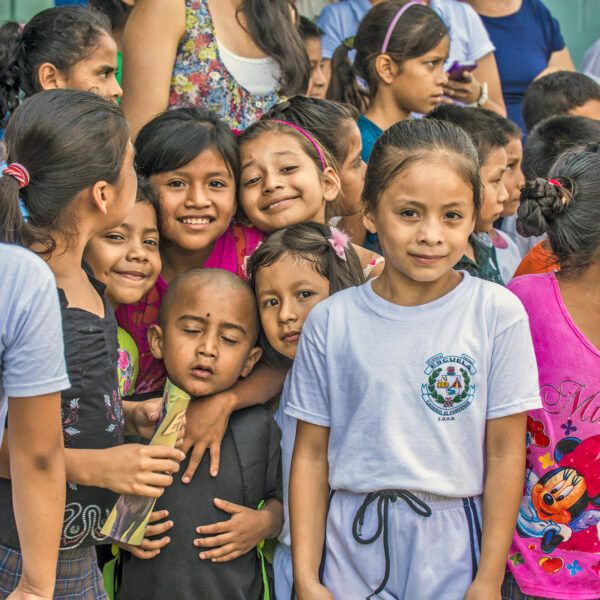
We can all play a crucial role to ensure that all children grow up in dignity. So, who’s with us?
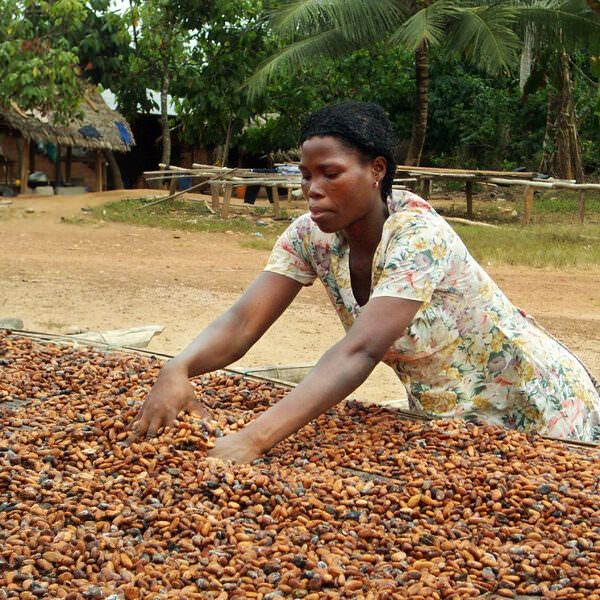
Our assess-and-address approach focuses on prevention, engagement, and improvement of human rights issues, and incentivizes farmers and companies to tackle human rights issues rather than hide them.
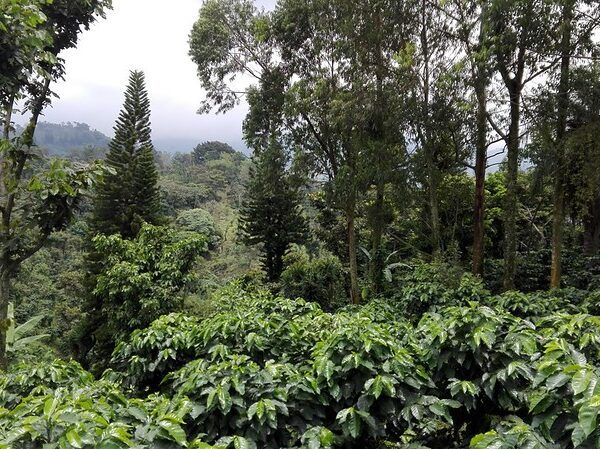
For the Rainforest Alliance’s Claudia Medrano, preventing child labor in Guatemala’s coffee landscapes is personal
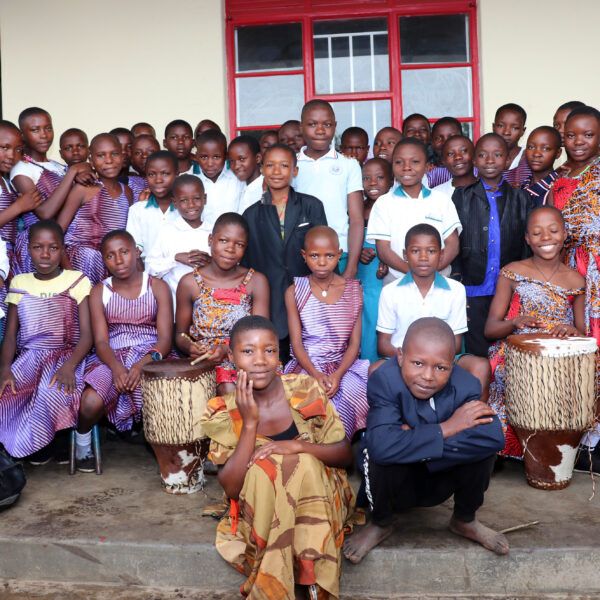
With the overarching goal of reducing child labor within coffee-farming communities, this project aims to create specific impacts within the partner communities—generating insights for other stakeholders to follow within their own contexts
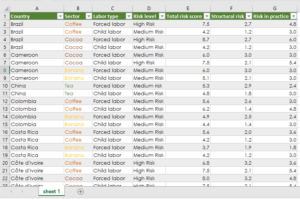
The data sheet provides the full score of risk calculations per country. It takes into account key indicators drawn from publicly available indices and our own research.... View more
Available in: English
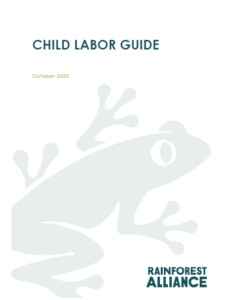
This step-by-step guide helps farms, businesses, and others to implement child labor due diligence, including risk assessments, mitigation actions, remediation, monitoring, engaging with children... View more
Available in: English, Spanish, French
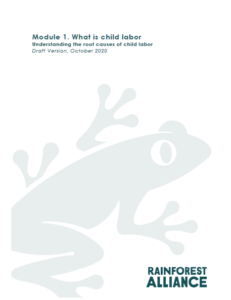
This module discusses the definition of child labor in international and national law, the different types of child labor, and its root causes.... View more
Available in: English, Spanish, French, Portuguese
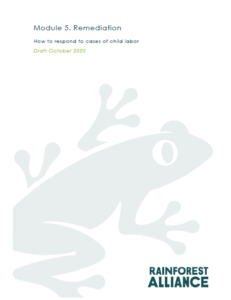
This module provides practical guidance on how to prepare for effective remediation and how to respond to and remediate cases of child labor when they arise.... View more
Available in: English, Spanish, French, Portuguese
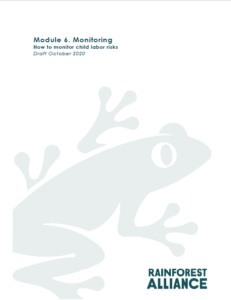
This module provides practical guidance on how to set up child labor monitoring systems in communities and how to monitor the effectiveness of your assess-and-address system.... View more
Available in: English, Spanish, French, Portuguese
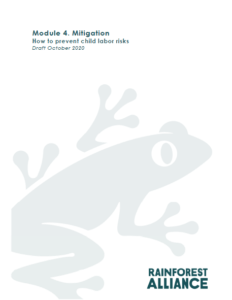
This module provides a step-by-step overview of the actions you can take to mitigate specific child labor risks. Actions discussed include awareness raising, training, child labor monitoring &... View more
Available in: English, Spanish, French, Portuguese